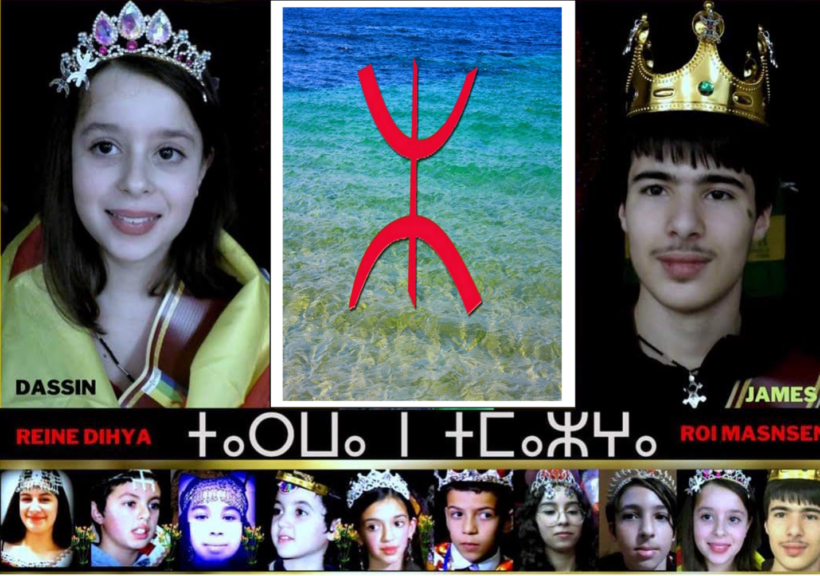The notion of identity evolves over time, according to the experiences and groups to which one belongs. It is made up of both what the individual creates and what others attribute. The Punic, Vandal, Byzantine, Arab, Turkish, and then French invasions, and despite the Islamization and Arabization of part of the populations, the Amazighs have succeeded in preserving their cultural identity. Children of Amazigh origin, whether born abroad or not, of parents of the same origin or from a mixed family, want their children to speak the language of their ancestors and to understand the culture, history and foundations of the Amazigh society.
The Amazigh associative movements that are created from year to year thus embody means of defense and promotion of identity. Like the project of the association “Amazigh Cultural Project World” (PCAM) located in Paris, its head MAJID SOULA, an artist and man of culture living in France, launched this sparkling project by organizing events for the benefit of young Amazigh children, helping them to understand the language, culture, and history through competitions to elect the Little Queen and the Little Amazigh King and the teaching of this language.
An example of the 5th edition of the Amazigh Children’s Competition held on January 14, 2023 of the Amazigh New Year Yennayer 2973 in London, where “Kabylian Community in UK” (KCUK) in partnership with “Amazigh Culture Project World” (PCAM ), two non-profit associations organized for the first time in the United Kingdom a historic competition for Imazighen children aged between 6 and 14, to elect a little QUEEN DIHYA and the little KING MASENSEN for an honorary title that will last one year, followed by musical songs. According to the head of “Amazigh Culture Project World”, the next 2024 edition will take place in the United States of America.
Finally, the next steps could be all the more difficult as the Amazigh associations are confronted with having to imagine new visions for the promotion of the culture and the ancestral identity of the Amazigh people.










